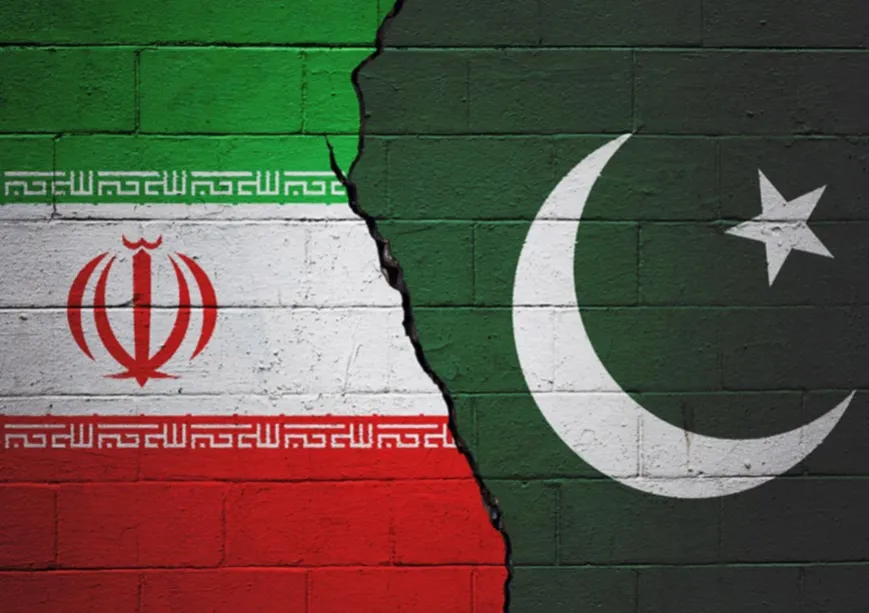
The ongoing spat and rising tensions between Iran and Pakistan have brought up the looming question of what next? Could Tehran’s targeting of Jaish al-Adl’s—a Sunni Islamist militant group—strongholds in Balochistan, and Islamabad’s retaliation 48 hours later, lead to a larger conflict between the two neighbours? Perhaps. The answer to how this will play out in the weeks to come is rooted in the history of the region and the ideology of the terrorist groups that are targeted by each country.
Jaish al-Adl, the group targeted by Iran, wants the independence of Iran’s Sistan-Balochestan province. Its members are Sunni Baloch, an ethnic and religious minority group in Shia-dominated Iran. An offshoot of the former Jundallah group, they have been responsible for a number of serious attacks against Iran, including several suicide bombings over the years, as well as kidnappings and assassination attempts against former President Mahmoud Ahmadinejad. The most recent attack, for which Iran retaliated, involved the killing of 11 Iranian security personnel in a police station. In an interview from 2007, the group’s now slain leader, Abdolmalek Rigi said that his group was fighting for the rights of the Baloch people including the recognition of their political, cultural, and economic rights in Iran.
An offshoot of the former Jundallah group, they have been responsible for a number of serious attacks against Iran, including several suicide bombings over the years, as well as kidnappings and assassination attempts against former President Mahmoud Ahmadinejad.
Pakistan’s strikes in Iran claim to have targeted the Baloch Liberation Front (BLF) and Baloch Liberation Army (BLA). Both groups’ stated goals are the protection of the Baloch people from the economic and resource exploitation by the Pakistani state. Given the strategic location of Balochistan bordering the Arabian Sea, with trade routes to southern Afghanistan and eastern Iran, the region has always been one of great importance to different rulers in the past, be it Persian, Afghan, Sikh, or British. Since 1947 and the Pakistani annexation of what was then called the kingdom of Kalat (present-day Balochistan), the Baloch resistance has fought against the state, articulating different demands, including greater political, economic, and cultural rights as well as political autonomy.
The BLF, the oldest of the two groups, has long been at the forefront of the Baloch insurgency since the late 1960s. The BLA, on the other hand, has been a more violent and radical group, that has fought against the Pakistan government to demand a better share of resources and greater autonomy, by attacking military convoys and personnel, kidnapping Chinese engineers, and killing civilians and security forces in the region.
Over the years, the economic exploitation of Balochistan’s natural resources, such as minerals and hydrocarbons; political and military oppression; a lack of autonomy; and the United States’ war in Afghanistan have led to a rise in extremism in the province. While the Pakistan Army has used groups such as Lashkar-e-Jhangvi to promote radical Islam in Balochistan and isolate Baloch separatists, groups such as the BLF and BLA have been known to cooperate and work together, with similar shared objectives. The development of the China-Pakistan-Economic-Corridor (CPEC) and its flagship project at the Gwadar port in Balochistan has increased the intensity of the suppression and ‘colonisation’ of the Baloch people and their land, without the locals reaping the benefits of this “grand” development project.
Jaish al-Adl possibly does have some sort of hold in Pakistan’s Balochistan, while the BLF and BLA will also have support in Sistan-Balochestan.
Given the history of the region and the ideology of the groups, while leaders in Tehran may issue strong warnings against Pakistan for harbouring members of Jaish al-Adl while pretending to remain absolutely clueless on the matter, the suspicions of both countries could possibly be valid. In other words, Jaish al-Adl possibly does have some sort of hold in Pakistan’s Balochistan, while the BLF and BLA will also have support in Sistan-Balochestan. The Baloch people and tribes in this region may be divided by the border between the two countries, but the daily exchange of goods between people on either side as well as the deep-rooted historical, cultural, ethnic, and religious ties is a matter of concern for Iran and Pakistan.
Jaish al-Adl might fight against its racial, ethnic, and religious discrimination and persecution at the hands of Iran, while the BLA and BLF may continue to wage war against the Pakistan Army for the economic exploitation of their land and lack of provincial autonomy; but the groups may be more similar to each other than their countries may choose to believe.
The ‘targeted precision strikes’ in each other’s country are therefore nothing except political and international grandstanding. Iran is currently fighting a war on multiple fronts, including through its proxy group Hamas in Gaza, while Pakistan, with its crippled economy and failing democracy, needs to put up a façade of strength before it goes into general elections next month. Neither nation needs a long-drawn-out conflict, nor can they afford a low-intensity one. The problems and grievances of the Baloch people are real and while groups such as Jaish al-Adl, BLA, and the BLF may use extreme, violent, and brutal means to get their voices amplified, they will remain ineffective in their objective.
Iran is currently fighting a war on multiple fronts, including through its proxy group Hamas in Gaza, while Pakistan, with its crippled economy and failing democracy, needs to put up a façade of strength before it goes into general elections next month.
This is not the first time Iran has violated Pakistan’s airspace or has killed anti-Iran elements in Pakistan, but it is the first known time that Pakistan has. While Pakistan’s actions set a dangerous precedent for the future, the strikes are a prime example of how the absence of counterterrorism cooperation can escalate into a diplomatic and on-ground conflict.
While the conflict in West Asia enters into a dangerous phase with Israel’s war against Hamas in Gaza and the attacks by Houthis in the Red Sea, it is highly plausible that groups with local grievances such as Jaish al-Adl, BLA, and the BLF may be drawn into the larger ‘global jihad’ project between Sunnis and Shia or Islam and Judaism. In other words, there is an opportunity for groups to form alliances, take sides, and join hands with other international militant or radical ideological groups, such as the Taliban, to further their objectives of wreaking havoc on their respective nations.
Kriti M. Shah was an Associate Fellow with the Strategic Studies Programme at the Observer Research Foundation
The views expressed above belong to the author(s). ORF research and analyses now available on Telegram! Click here to access our curated content — blogs, longforms and interviews.




 PREV
PREV


